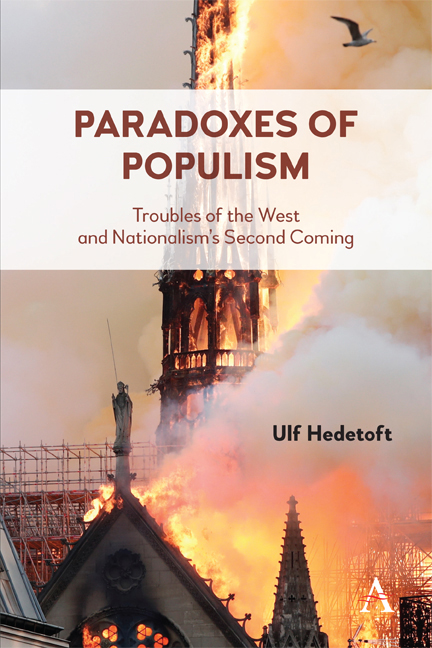Book contents
- Frontmatter
- Contents
- Acknowledgments
- 1 Introduction
- 2 What Is the Problem?
- 3 The People and Popular Sovereignty. Back to Basics, and Onward …
- 4 The Nationalization of the People
- 5 Fantasies and Paradoxes of Populism
- 6 Myths and Misconceptions
- 7 Sweden-Intransigent Moralities at War in the Peopleâs Home
- 8 Catalonia-Toward a State Truly Our Own!
- 9 Hungary-Righteous Revenge for Historic Humiliations
- 10 Brexit-Between Despair and Delusion
- 11 The United States-Normalizing a Superpower by Abnormal Means
- 12 Extractions and Perspectives
- References
- Index
4 - The Nationalization of the People
Published online by Cambridge University Press: 02 April 2020
- Frontmatter
- Contents
- Acknowledgments
- 1 Introduction
- 2 What Is the Problem?
- 3 The People and Popular Sovereignty. Back to Basics, and Onward …
- 4 The Nationalization of the People
- 5 Fantasies and Paradoxes of Populism
- 6 Myths and Misconceptions
- 7 Sweden-Intransigent Moralities at War in the Peopleâs Home
- 8 Catalonia-Toward a State Truly Our Own!
- 9 Hungary-Righteous Revenge for Historic Humiliations
- 10 Brexit-Between Despair and Delusion
- 11 The United States-Normalizing a Superpower by Abnormal Means
- 12 Extractions and Perspectives
- References
- Index
Summary
Populism would be unthinkable if it did not base itself on the morality of citizenship that has just been outlined and that is an integral part of nationalism. The creation of this moral consciousness and of “national identity” is a complicated process, where the end- point reverses the point of departure (Hedetoft 1995, 27– 34). Private persons set out to pursue their private aims and find out that this is not possible without taking other societal interests into account and making deals with them in various ways. This in turn generates the state and its institutions, because interests are often so antagonistic that they cannot be mediated without an agency representing the “common will” placed outside and above the private revenue holders— an agency to which people need to surrender their individual sovereignty. Since this institution— the state— cannot in fact neutralize the opposing interests and find a “golden mean” that will satisfy everybody permanently, it needs to inculcate a morality of citizenship and affective belonging in all its subjects, which comes over and above its more specific demands for taxes, civil and political participation, military prowess, austerity and so on, and shades into national identity and national pride, when the standing of the nation- state in an international, comparative perspective is at stake.
All of a sudden, the concrete interests that formed the point of departure have been replaced by citizens’ relativization of their material objectives, by abnegation and sacrifice, even gratitude for being allowed to possess a particular passport— the transformation being more serious for some social groups than others. But the dependence on politics and government policies also breeds a peculiar brand of critical attitude toward political elites, who are always seen to fall short of expectations and never totally to deliver on their promises. This can, provided the right context and if the requisite circumstances present themselves, develop into the anti- elitism and conspiratorial attitudes of populists— both “ordinary people” and elites who see a chance of pushing their own nationalist agendas.
- Type
- Chapter
- Information
- Paradoxes of PopulismTroubles of the West and Nationalism's Second Coming, pp. 37 - 50Publisher: Anthem PressPrint publication year: 2020

